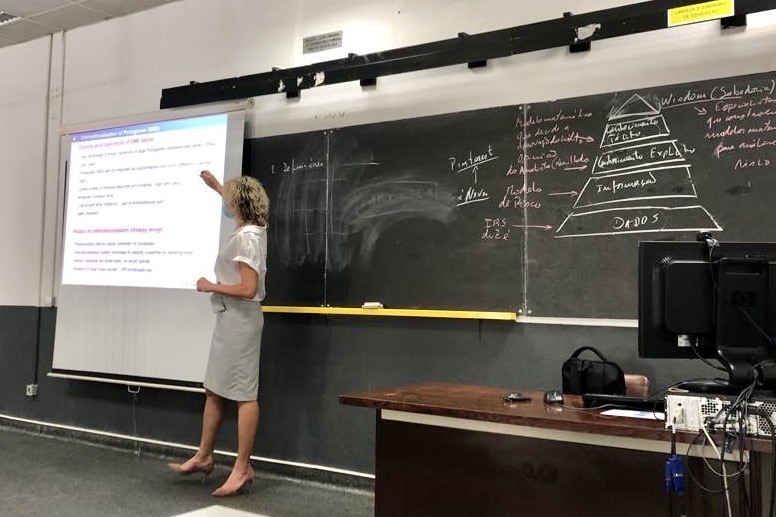International Office: How did the contact with Portugal come about and what made you decide to go there to teach, despite the current corona crisis?
Prof. Natalia Ribberink: The contact with Portugal came about in 2016 with the support of my colleague from the Department of Business, Prof. Dr. Adelheid Iken, who was working in cooperation with the Fernando Pessoa University in Porto at the time. Since 2016 I've organised annual research stays in Portugal for the students in our International Business Master's course, each of which has been dedicated to a current research topic in international business. As part of these trips we visit various institutions and research facilities with the students, in addition to completing the academic programme. The cooperation was expanded to Lisbon (Universidad de Europeia) in 2018 and to another university in Porto (University of Porto) in 2019.
The September 2020 teaching exchange was arranged as part of the Erasmus mobility programme, at the invitation of our partner university in Lisbon. The winter semester in Portugal had already started, and on-campus teaching in small groups was really welcomed, especially when it gave students the opportunity to attend an international guest presentation and gain new insights. In the current situation, this is the only option for getting international input that is available to many students.
International Office: What corona-related measures were in place at the partner university and did you feel safe?
Prof. Natalia Ribberink: The partner university has adapted to the current situation. Masks are required across the entire campus, both inside and outside. This was the first time I had taught for several hours while wearing a mask, which definitely required getting used to. And there were hand disinfectant dispensers everywhere on the campus which – like those everywhere else in Lisbon – had a practical foot pedal. All of the rooms were aired continuously, something the climate in Portugal makes easier. I felt very safe.


